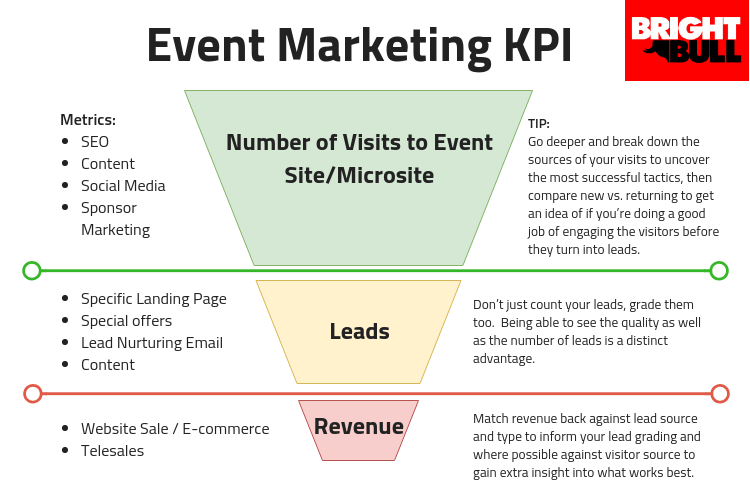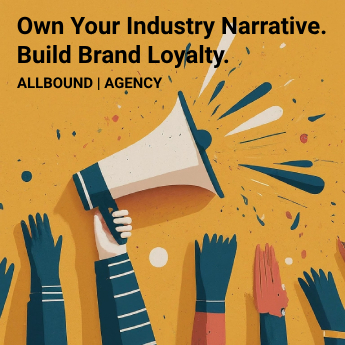In today’s increasingly competitive business landscape, it’s essential to have an edge over your competitors. B2B event sales can provide that advantage by offering unique opportunities to connect with potential clients, showcase your products, and network with other businesses in your industry. Are you ready to unlock the potential of this powerful sales strategy?
B2B event sales involve generating leads and closing sales through events like trade shows, conferences, roadshows, VIP dinners, and webinars, specifically tailored to the business-to-business market. By choosing the right type of event for your specific goals, leveraging digital and social media for promotion, and integrating event sales into broader marketing campaigns, you can maximize the return on investment from your B2B event sales efforts.
But the benefits don’t stop there. Continue reading to learn about the importance of collaboration between sales and marketing teams, best practices for event sales, and how to analyze event performance for even greater results.
Understanding B2B Event Sales
While an online presence is increasingly crucial for businesses operating in the digital era, the significance of face-to-face interactions at B2B events cannot be undermined. These events help generate leads, make sales, and establish stronger relationships between businesses and their potential clients.
The key objective of B2B event sales is to generate leads and drive sales by organizing and attending events specific to the B2B market. These events offer unique opportunities to connect with potential clients, showcase your products, and network with other businesses in your industry.
Given the dramatic shift towards digitalization, these offline opportunities provide an edge over online marketing strategies, adding a personal touch to business interactions. They allow you to make an impression that goes beyond virtual communication, making them a powerful sales strategy.
According to Markletic, almost 87% of C-Suite executives believe in the power of live events and plan on investing in them more in the future. This indicates that B2B event sales can provide a competitive advantage by acting as a platform for showcasing your products or services to the right people, at the right time.

Source: BrightBull
Types of B2B Events that Drive Sales
Different types of B2B events serve various purposes. Let’s explore some of these events to better understand their potential to drive sales:
- Trade Shows: Businesses can showcase their products, interact with potential clients, and network with other industry professionals.
- Conferences: Often featuring educational content from industry experts, conferences offer insights into the industry’s latest trends and best practices.
- Roadshows: Branded events that occur across multiple locations, helping to reach new audiences.
- VIP Dinners: These exclusive gatherings help nurture high-profile leads by offering personalized experiences.
- Webinars: Virtual events that make lead generation possible across geographic boundaries, offering convenience and global reach.
Out of these events, trade shows and conferences, in particular, have proved to be effective in creating brand awareness and generating leads. Not only can you pitch to clients, but you can also gain insights into your competitors’ marketing strategies.
Selecting the Right Event for Your Sales Goals
The type of event you choose to participate in or organize can greatly depend on factors like the target audience, budget, and potential for lead generation. For instance, if your target audience is spread across multiple locations, hosting webinars or participating in major trade shows in these places may prove fruitful.
It is crucial to align the event with your company’s sales goals to optimize ROI. You must understand your target customers’ behavior, interests, and problems to select the right kind of event that will attract them and design experiences that will hook them.
Best Practices for B2B Event Sales
To maximize your B2B event sales potential, you need to follow some tried-and-tested practices:
- Define clear goals and KPIs: Before any event, establish what you want to achieve – whether it’s the number of leads you want to generate or the number of deals you want to close.
- Offer engaging content: This can add value to the attendees and position your brand as an industry leader. For instance, during a webinar, don’t just basically sell your product, educate your attendees about industry trends, and how your products can help.
- Create networking opportunities: Foster connections between attendees, speakers, and sponsors. This encourages business relationships and contributes to a positive event experience.
- Follow up promptly with leads post-event: The process of lead conversion doesn’t end with the event. It’s crucial to follow up after the event, nurturing leads through various stages of the sales funnel.
Our article on How to Combine Outbound and Inbound Marketing highlights how you can nurture leads through a mix of outbound strategies like event sales and inbound tactics such as content marketing.
Leveraging Digital and Social Media for Event Promotion
We live in a digital age where most customers spend considerable time on social platforms. Hence, incorporating digital and social media in your event promotion strategy is critical. You can use platforms like LinkedIn and Twitter to increase event visibility and attract the right attendees.
Social media can be handy for promoting your events before they happen, engaging with attendees during the event, and post-event follow-up. For instance, create an event hashtag for Twitter and encourage attendees to share their experiences. That builds event visibility and creates user-generated content that you can leverage for future promotional activities.
It’s worth noting that the integration of digital strategies not just helps in event promotions, but also in tracking event performance. Digital platforms offer insightful data that can help gauge engagement levels, identify trends, and understand attendee behavior better. Therefore, leveraging digital and social media isn’t an option; it’s a strategy you must include in your B2B sales plan.
In conclusion, unlocking the potential of B2B event sales promises an array of benefits – from lead generation to customer engagement. However, it requires strategic planning, vigilant execution, and consistent follow-ups to deliver the expected results. By evaluating the types of B2B events, aligning them with your sales goals, sticking to best practices, and leveraging digital and social media for promotions, you are well on your way to maximizing your B2B event sales endeavors.
Maximizing ROI from B2B Event Sales
B2B event sales offer a massive opportunity to interact with potential clients in a lively and hands-on environment. The effectiveness of these engagements can significantly affect your sales pipeline. Therefore, every company aims to maximize its return on investment (ROI) from these events. The key lies in understanding how to analyze event performance, integrate event sales with broader marketing strategies, and leverage technology to streamline processes.
Analyzing Event Performance and ROI Measurement
One common question in the B2B event sales space is, “How would we know if the event was successful?”
The answer lies in defining clear performance metrics and utilizing them to evaluate event outcomes accurately. While these measurements would vary depending on the organization’s goals, some commonly used issues include the number of attendees, quality of leads generated, subsequent sales conversion rates, and attendee engagement levels.
Such data can be collected through event surveys, social media interactions, and tracking software. These numbers should then be assessed against the event cost to calculate the ROI. The higher the ROI number, the more successful the event.
Integrating Event Sales Strategy with Broader Marketing Campaigns
Another critical factor that contributes to maximizing ROI in B2B event sales is the effective integration of event strategies with broader marketing campaigns. This symbiosis can lead to the creation of a cohesive and successful sales strategy.
For instance, coordinating event promotions with email marketing campaigns can generate buzz around the event, leading to higher attendance rates. Marketing content created for the event can also be repurposed on different platforms; blog posts, for instance, can be shared on social media to engage potential leads even if they cannot attend.
The Role of CRM and Sales Automation in Event Sales
As businesses continue to rely heavily on technology, the use of Customer Relationship Management (CRM) and sales automation tools has become central to achieving sales goals.
CRM solutions help businesses manage their interactions with potential and existing customers by keeping a record of the conversations, deals, and the stage a lead is in the sales pipeline, ensuring no opportunities are missed.
Sales automation software, on the other hand, helps to automate recurring sales tasks like sending follow-up emails, scheduling calls and meetings, which could otherwise consume valuable time. This combination of CRM and sales automation can significantly increase sales productivity.
Collaboration between Sales and Marketing Teams for Event Success
As explained in the A Comprehensive Guide To B2B Event Marketing, ensuring a successful B2B event sales strategy requires a concerted effort between the sales and marketing teams.
Collaboration bears fruit when marketing takes the lead in generating awareness and pulling in qualified leads using their knowledge and research. Simultaneously, the sales team can use their skills to close business deals, converting those leads into loyal customers during the event.
Enhancing Sales Techniques for Event Success
Equipping the sales teams with improved sales techniques can drive event success. Organizing training sessions for sales personnel on networking skills, elevator pitches, and negotiation strategies can prove invaluable.
Data tells us that the manner in which the sales teams engage with the attendees can make or break a deal. For instance, personalizing the conversation to the lead’s needs can increase the conversion chance by 20%.
Frequently Asked Questions
What metrics can be used to measure event success?
The metrics used to measure event success can include the number of attendees, quality of leads generated, sales conversion rates, attendee engagement levels, and the overall ROI.
How can event sales integrate with our marketing campaigns?
Event sales can be integrated with marketing campaigns by creating messaging that aligns with the event’s theme across all marketing channels. This could include email campaigns, social media content, blog posts, and website banners.
Do I really need a CRM for my event sales?
Yes, a CRM assists in managing potential and existing customer interactions and tracking leads throughout the sales pipeline. It provides an organized platform to manage customer data, making it an invaluable tool in the sales process.
How does sales team collaboration with marketing result in event success?
Collaboration leads to success when marketing generates awareness and leads for the event, while sales skillfully close deals during the event, converting leads into customers.
How can sales techniques be enhanced for the event?
Sales techniques can be enhanced through regular training sessions focused on improving networking skills, pitch presentations, negotiation strategies, and understanding and addressing the needs of potential clients.


